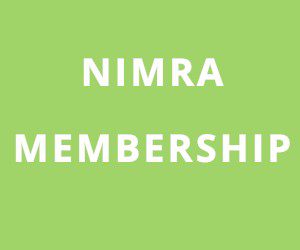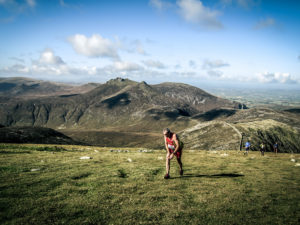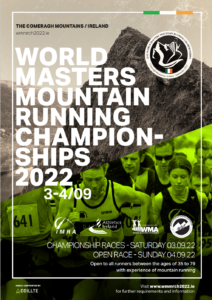This is a list of mandatory kit for medium (> 10km) and long mountain races. The race organizer will probably have a kit check before the race begins and may do so again during the race or at the finish. For some races and weather conditions the race organizer can specific additional kit eg an extra layer of clothing. A race organizer may notify entrants by email of additional kit but rule of thumb bring all the mandatory kit to every race and await guidance from the race organizer for more or less kit on the day.
For short races under 10 km, there is normally no mandatory kit. However you should bring all the following items as the race organizer still has discretion to require one or more of them. If you carry less than the specified kit, you can be disqualified.
As individual athletes are responsible for their own safety, you may well decide to carry more kit than required.
These rules apply to all mountain races run under the auspices of the Northern Ireland Mountain Running Association, with an insurance permit issued by NIMRA, authorized by Athletics NI and hence British Athletics.
Number 1, you need a waterproof jacket that has a hood attached and that has taped seams. Taped seams stop water getting through the holes that are made while stitching the jacket. The tape can be found either on the inside or outside of the jacket, like on this Columbia Outdry coat. Other good mountain-running brands include Inov8, Salomon, Montane, OMM, Rob and Kalenji.
Number 2, you need waterproof trousers. It is highly unlikely that you’ll be running in these, so you can get cheap and cheerful ones for around £30 from Decathlon or something like these lightweight Inov-8 Trailpant for £120.
Number 3 and 4, hat and gloves. Cheap ones are fine, just don’t bring cotton ones.
Number 5, a map of the course. Most of the NIMRA races occur in the Mourne Mountains, so a Harveys 1:25,000 or an OS 1:25,000 does the job. When the course is not marked, you’ll need to be able to plot the checkpoints on the map and be able to navigate between them. If you’re a member of a mountain running club, ask someone to show you how this is done. If not, sign up for a mountain running navigation course with a local provider. Competitors usually mark the points to be visited (the controls) on their map prior to race day (except for orienteering type events eg Mountain Marathon).
Note that a colour photocopy map at a scale of 1:25,000 covering the whole race route (and sufficient surrounding area to enable you to navigate off the course to safety) is normally reckoned to meet the kit requirement, unless the race organizer specifies otherwise.
Number 6, a compass. You can have a cheap and cheerful hiking one for around £10, but remember that an orienteering compass like a Silva or Moscow thumb compass will be more accurate when running.
Number 7, a whistle. Most bags come with a whistle attached, but if not you can pick up one for a pound or two. If you get in trouble, the international distress signal is six blasts of a whistle, with an interval of one minute between every six blows. If you hear emergency blasts, you should reply with three whistles back.
Number 8, a foil blanket, again available for a pound or two. This is a crucial piece of kit that can help prevent hypothermia.
Number 9, some emergency food & drink,- nothing fancy, just a bar.
Number 10 – a mobile phone, only to be used during an event as a safety measure, Reception in the Mournes cannot always be guaranteed. This will be up to the Race Organiser to confirm on the day.
You might wonder why you would need all this stuff. Well if you’re running strongly, or its good weather, you can pretty much keep it all in your bumbag or rucksack. But if you have to slow down or stop because of injury or tiredness, or if you need to help another runner in difficulty, then this kit could save lives.
The mountains are a great playground, but they are also a potentially dangerous place. Depending on the weather forecast, race organisers might ask you to carry more kit than this, so please always check race instructions before the day to make sure you have everything required.



